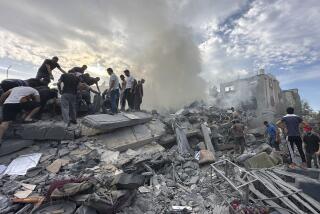Overcoming Bolivia’s Past
Bolivia is South America’s poorest country, where political instability has been the rule. Since it gained independence from Spain in 1825, Bolivia has suffered nearly 200 coups. In 1980 a precarious democratic civilian rule was established, but poverty, social unrest and growing drug production have made it hard for democracy to take root.
Many in Bolivia blame its problems mostly on one event that happened more than 100 years ago. During the War of the Pacific from 1879 to 1883, Bolivia lost a large portion of its territory to Chile. Losing its coastline had a devastating effect on Bolivia, isolating it in the Andean heights.
Bolivians never lost faith that one day they would recover their coastline. And even today, the Bolivian navy holds its maritime exercises in the cold waters of Lake Titicaca, 12,785 feet above sea level. Every day, Bolivian schoolchildren sing an anthem that reminds them that access to the Pacific is their inalienable right.
Earlier this month, speaking at the Americas summit in Monterrey, Mexico, Bolivian President Carlos Mesa brought the matter to international attention when he called on his Chilean counterpart to negotiate the long-standing dispute.
Chile’s reaction was negative. It has refused to hold negotiations until both countries restore diplomatic relations, which were severed in 1978. The issue is complicated because at one point Peru also lost land to Chile. In 1929, they agreed by treaty that Chile had to consult with Peru before relinquishing any land that had belonged to Peru. In 1975, Bolivia and Chile almost reached agreement on a corridor to the sea and a port for the Bolivians. Peru objected, instead making a counterproposal that Chile refused to accept. Frustrated, Bolivia severed ties with Chile in 1978.
While the territorial dispute was on display in Monterrey this month, the United States and Mexico were busy working with 17 nations from three continents and six international organizations, including the United Nations and the World Bank, to form the Bolivia Support Group. The main goal of the group is to strengthen the fragile Bolivian democracy. Nothing could be better for Bolivia and for the region than to have the support group add a new task: jump-starting the conversation among the three South American countries involved in this nasty and enduring territorial dispute.
More to Read
Sign up for Essential California
The most important California stories and recommendations in your inbox every morning.
You may occasionally receive promotional content from the Los Angeles Times.










